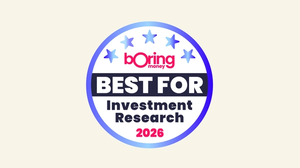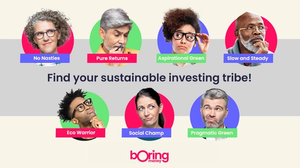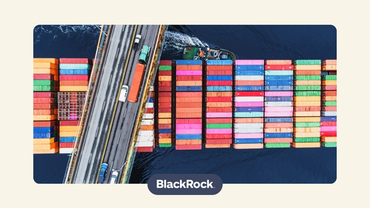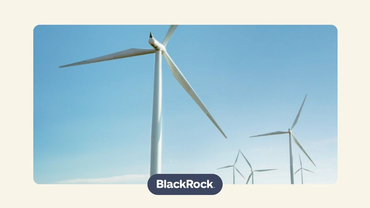Top picks from the fund selector experts
1 Nov, 2022
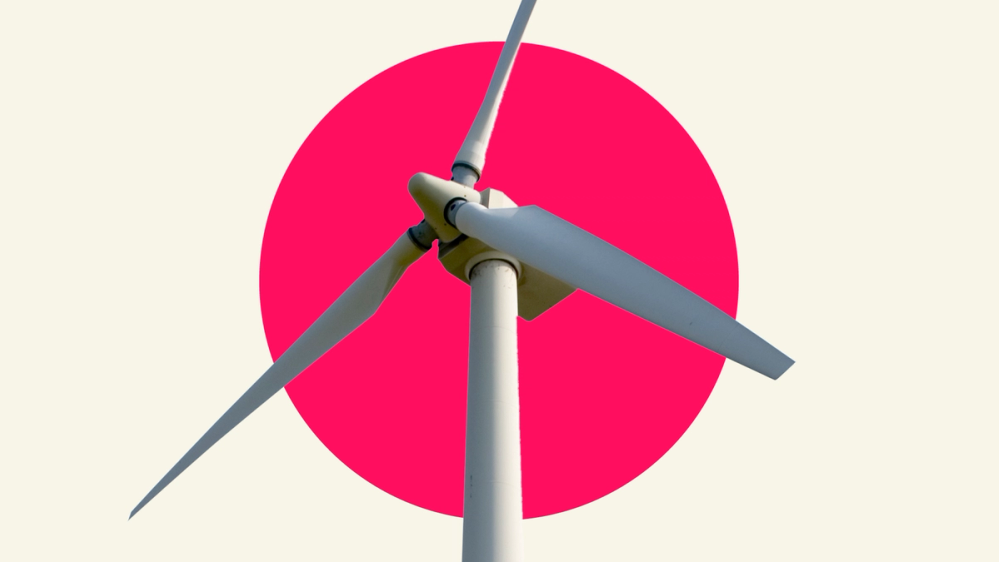
A recent study from Make My Money Matter - people-powered campaigners demanding our pension money is invested to build a better future - suggests making a pension ‘green’ is more effective than going vegan, stopping flying, and switching to a renewable energy provider combined. That’s quite an incentive, but choosing the right ‘green’ option isn’t always easy. There is a myriad of options and it’s not always easy to understand who does what and why.
There's now more choice of responsible, sustainable, ethical or ‘ESG-aware’ (environmental, social and governance) funds than ever before, as fund groups have realised the appetite for this type of investing. Sustainable investors of every hue can find an option that meets their particular set of values and priorities.
That said, most investors don’t come with an exacting list of criteria. They're just keen that their investments aren’t actively contributing to the destruction of the planet, supporting child labour, or any of the other nasties that investors can inadvertently support. In theory, all responsible investment should avoid this, but it isn’t quite that straightforward.
Why going green can be tricky
Funds that are labelled ‘ESG’ or have any of the other ‘responsible’ tags come in many guises. There is no clear definition of an ESG fund and there are a range of approaches. Some fund groups stand accused of simply changing their marketing literature, with little change in their investment approach. While better labelling is coming down the pipe, in the meantime, investors need to navigate the sector with care.
Equally, performance isn’t always the most reliable guide. The strength of any ESG criteria in place and the exclusions that are placed around a fund will affect performance. For example, a fund that can’t invest in fossil fuels will have done badly recently compared to a fund that takes a more ‘engagement’ approach, holding fossil fuel companies but opening a dialogue with the management teams to try and make them better.
With this in mind, while there is plenty of choice for investors in this part of the market, picking the right option isn't always easy. Turning to the experts can help, so we’ve asked five fund selectors to give their choices for responsible options.
5 investing experts' top sustainable funds
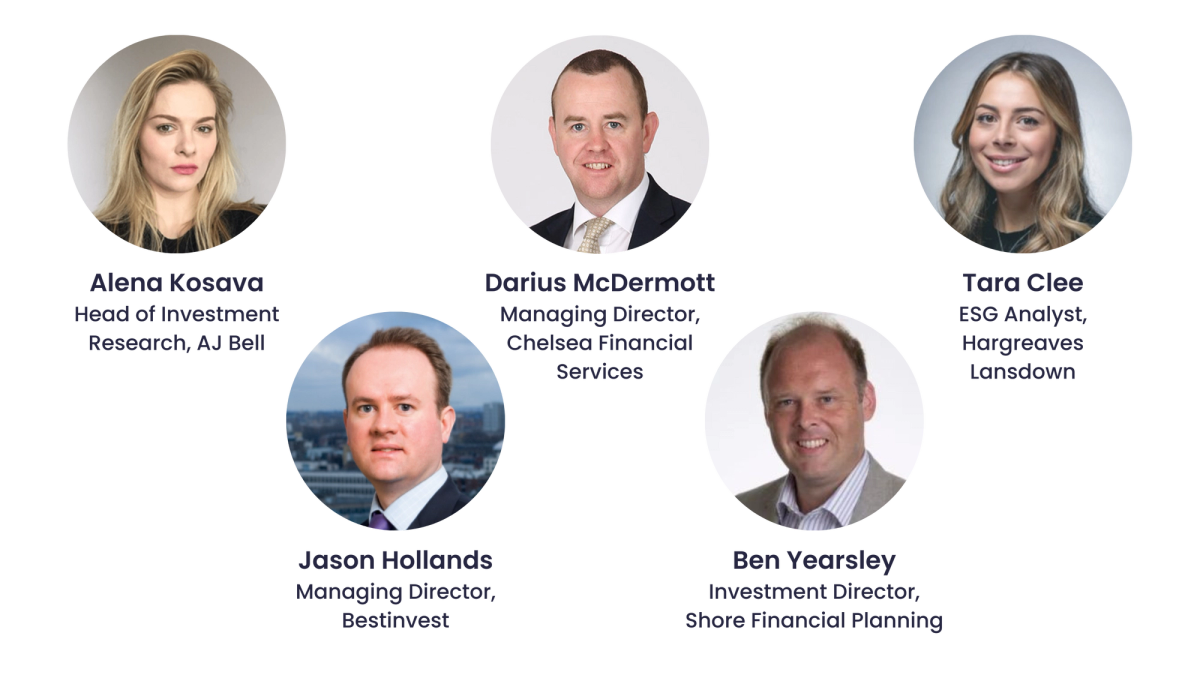
Alena Kosava, AJ Bell’s Head of Investment Research
Royal London Sustainable Leaders and Liontrust Sustainable Future UK Growth
For investors who just want a good core fund with some reassurance that they are not supporting any nefarious activities, Alena Kosava, AJ Bell’s Head of Investment Research, suggests the Royal London Sustainable Leaders.
“Manager Mike Fox was one of the firstcomers to the area of sustainable investing within the UK market and has been at the helm of the strategy for two decades. Incorporating both positive and negative screening, the fund operates a focused (c. 40 names) benchmark-agnostic approach, has no energy exposure, invests away from commodities more broadly and has a bias towards innovation".
She says Fox has now built a strong team around him at RLAM and the fund can claim a decent track record. Its quality growth style saw it protect capital through the Covid-19 sell-off, while recovering well from the market lows. Relative performance has lagged a little recently because it has no holdings in oil.
Kosava adds, “It is diversified by theme, although market rotation away from long duration assets is typically expected to be a headwind. The fund has some overseas exposure, currently c. 16% in US stocks, which has been helpful through the market turmoil in the year to date".
Her other choice – and another core option for investors – is the Liontrust Sustainable Future UK Growth. Again, it is run by an experienced team, who have developed a proprietary research tool. It incorporates a clear alignment to the UN Sustainable Development Goals within its reporting framework.
Kosava says, “The fund operated a number of exclusions and draws on the expertise of outside experts, including an independent advisory committee of sustainability field experts. The portfolio is solely focused on UK assets, with no overseas names. Its approach leads to a large exposure within financials (a third of the fund), industrials and technology. The fund is comprised of around 50 names and long-term performance has been strong".
Jason Hollands, Managing Director at Bestinvest
CT Responsible Global Equity and Brown Advisory US Sustainable Growth
For investors who would rather look outside the UK, Jason Hollands, Managing Director at Bestinvest, picks the CT Responsible Global Equity and Brown Advisory US Sustainable Growth funds.
On the CT Responsible Global Equity, he says, “This former BMO GAM fund is now part of Columbia Threadneedle following their acquisition of BMO GAM. It is a long-established fund, launched nearly 20 years ago, which takes a global approach focused on companies that make a positive contribution to society and the environment, including human rights and biodiversity, while excluding those with damaging or unsustainable business practices such as tobacco, weapons and pornography.
“An Advisory Council, which includes the Archbishop of Canterbury, oversees the policies of the fund, and a large team actively engages with companies held in the portfolio to encourage them to adopt best practice".
The Brown Advisory fund is run by portfolio managers Karina Funk and David Powell, who have created a concentrated 30 to 40 strong portfolio of predominantly large-cap US companies that they believe offer ‘durable fundamental strengths, sustainable competitive advantages and compelling valuations’. The managers incorporate both positive ESG criteria and a negative exclusion screen in their bottom-up stock selection process.
Darius McDermott, Managing Director of Chelsea Financial Services
Edentree Responsible & Sustainable UK Equity Fund, Ninety One Global Environment Fund and Rathbone Ethical Bond Fund
Darius McDermott, Managing Director of Chelsea Financial Services, picks the Responsible & Sustainable UK Equity Fund from sustainable investing pioneers Edentree.
He says, “The company conducts research in all things from modern slavery, to biodiversity, financial exclusion to conflict minerals. Their funds tick the box for even the most discerning investor. The Edentree Responsible & Sustainable UK Equity Fund invests in predominantly medium and small UK companies. It's run by Sue Round and Ketan Patel, who are both passionate about investing in the right companies. What they don't know about this area really isn't worth knowing".
There are also a range of specialist funds for groups that want to target specific areas. On the environment, there is bags of choice among both active and passive funds, but investors need to ensure that the quality of analysis is robust. With this in mind, McDermott picks Ninety One Global Environment.
He explains, “It has a unique approach of only investing in companies that are contributing to the decarbonisation of the world economy. The portfolio has complete conviction, with just 20-40 holdings and is set to benefit from the massive tailwind of the some $2.4 trillion of annual spend required to meet global temperature goals. As well as avoiding creating carbon emissions, companies in the fund also have to have at least 50% of their revenues from three sectors: renewable energy, efficient use of resources and electrification".
McDermott also singles out the Rathbone Ethical Bond Fund, which invests in higher quality investment grade bonds. These now have more appeal as interest rates have risen. He adds, “Ethical exclusions are simple: no mining, arms, gambling, pornography, animal testing, nuclear power, alcohol or tobacco. All positions must also have at least one positive environmental, social or corporate governance quality. Ethical research for this fund is provided by Rathbone Greenbank Investments, a dedicated ethical, sustainable and impact team of Rathbones, that works with the fund managers".
Ben Yearsley, Investment Director at Shore Financial Planning
Schroders ISF Global Energy Transition and First Sentier Responsible Listed Infrastructure
Ben Yearsley, Investment Director at Shore Financial Planning, picks the Schroder Global Energy Transition fund. He says, “As the name might suggest, the fund aims to invest in companies that are involved with the energy transition story, in other words the decarbonisation and electrification of the energy system. The beauty of this fund is it can invest anywhere along the chain - from hydrogen to solar panel makers to batteries - but it won’t invest in oil and gas. It’s a high growth area so expect volatility in the long run".
Increasingly, investors aren’t confined to equity investments, but have plenty of options in other asset classes to build a diversified portfolio. Yearsley’s other option is the First Sentier Responsible Listed Infrastructure fund.
“I’ve been a long-term investor in infrastructure. It goes in and out of fashion, but it’s got great defensive qualities over the long term. Many of the underlying companies also have good inflation linking to their revenue - ideal at this juncture. First Sentier were one of the first groups to launch an infrastructure fund in the UK in 2007 and were again one of the first to launch a sustainable version. This fund benefits from the same team and process with a sustainable overlay".
Tara Clee, ESG Analyst at Hargreaves Lansdown
FP WHEB Sustainability
At the top of the responsible investing tree sit impact funds. These funds are for the purists, with a dual mandate of sustainability targets and performance targets. That means investors can see the impact they are making with their investments on a series of metrics – renewable energy generation, carbon emissions and waste water, for example.
Tara Clee, ESG Analyst at Hargreaves Lansdown, picks the FP WHEB Sustainability. The fund invests in companies making a positive impact within nine investment themes: four social (education, health, safety, and wellbeing) and five environmental (cleaner energy, environmental services, resource efficiency, water management, and sustainable transport). Companies that have a negative impact on the environment and society aren’t considered.
£10,000 invested into the fund throughout 2021 would have helped generate 4MWh of renewable energy, saved three tons of carbon dioxide emissions, and also had an impact on social goals such as the provision of tertiary education and healthcare.
A final word of advice
Increasingly, investors can find a responsible investment option to suit them, and the difference it makes can be profound in terms of its impact on the planet and society. And unlike Kermit the Frog, it can be easy to be green – just make sure you pick carefully, and you can build a portfolio that matches your values.
Post a comment:
This is an open discussion and does not represent the views of Boring Money. We want our communities to be welcoming and helpful. Spam, personal attacks and offensive language will not be tolerated. Posts may be deleted and repeat offenders blocked at our discretion.

